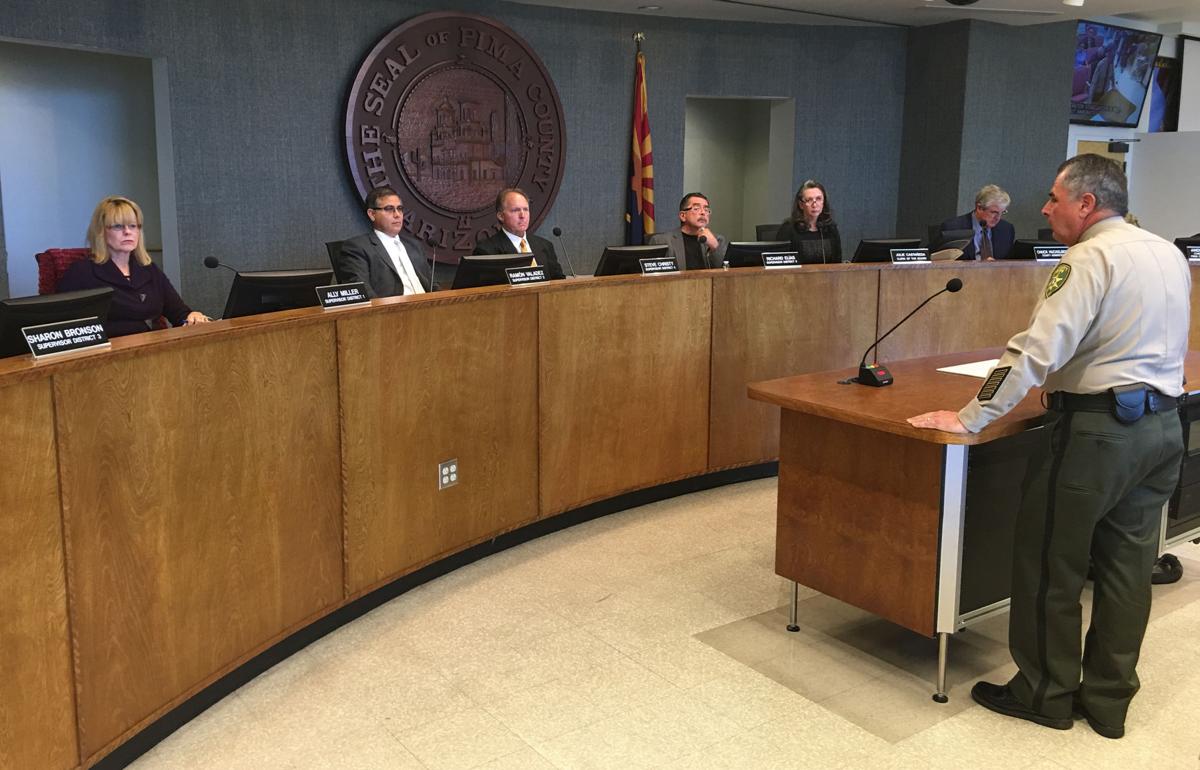The Pima County Board of Supervisors reversed its early February decision to reject a $1.4 million federal border-security grant that covers overtime, mileage and equipment costs for the sheriff’s department.
Supervisor Ramón Valadez, who previously voted against the Operation Stonegarden funding, changed his vote Tuesday and joined supervisors Steve Christy and Ally Miller in approving the grant. It is intended to encourage collaboration between local and federal law enforcement agencies like the Border Patrol.
But Valadez asked that approval come with conditions. Specifically, he requested that all employee related expenses associated with the grant be completely covered, that a new grant coordinating process be established for federal monies like Stonegarden, that financial impacts on other elements of the criminal justice system be tracked and that a formal policy regarding deputy interactions with federal officers be developed. He also asked for the creation of a new committee to look at the issue of racial profiling.
Before the vote the supervisors heard from numerous critics — as well as a few supporters — of the grant program.
Anakarina Rodriguez, the Tucson coordinator for Mi Familia Vota, said collaboration between local and federal law enforcement creates an “atmosphere of fear in our communities.”
“We are less likely to report a crime for fear of deportation, putting everybody at risk,” said Jessica Rodriguez, the lead organizer at the Southside Worker Center.
Pointing to data obtained from the sheriff’s department, Billy Peard, an attorney with the American Civil Liberties Union’s Tucson office, said the enforcement paid for with the grant largely results in minor charges and citations or, much more often, none at all. It also can result in deportation and family separation, he said.
“Why are we expending the limited resources of the sheriff to place deputies at a Border Patrol checkpoint?” he said.
Other speakers raised concerns about additional costs borne by the county due to the program.
Mark Lytle, one of a handful Stonegarden defenders to speak, said the grant is helps local law enforcement reach all parts of the county, telling the supervisors, “It is your job as government officials to secure the rights of the citizens.”
Sheriff Mark Napier also defended the program, which he noted has been approved without issue since 2004. The money allows his department to patrol in rural areas that would otherwise see less law enforcement and pays for equipment with applications apart from federal collaboration. He also sought to allay concerns shared by immigrant advocates, saying “we are not in the business of proactive federal immigration enforcement.”
Pointing to national opioid addiction issues, he added “this is not a time to diminish our presence.”
As to Peard’s claims that Stonegarden-funded enforcement results largely in minor charges, Napier later told the Star that the data cited was cherry-picked to make a point and argued that fuller data would show that it results in substantial drug seizures and other successes.
In a recent letter to Valadez, Napier wrote that in 2017 Operation Stonegarden deployments resulted in 164 felony arrests, 4,794 traffic stops and over 4,000 pounds of marijuana, among other charges and seizures.
He did agree with Peard that deputies being stationed at Border Patrol checkpoints may not be appropriate, saying it “sends a bad message.”





